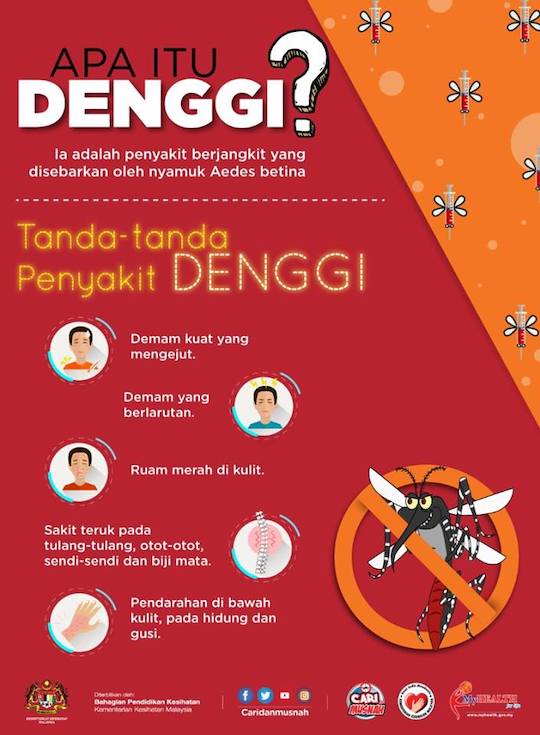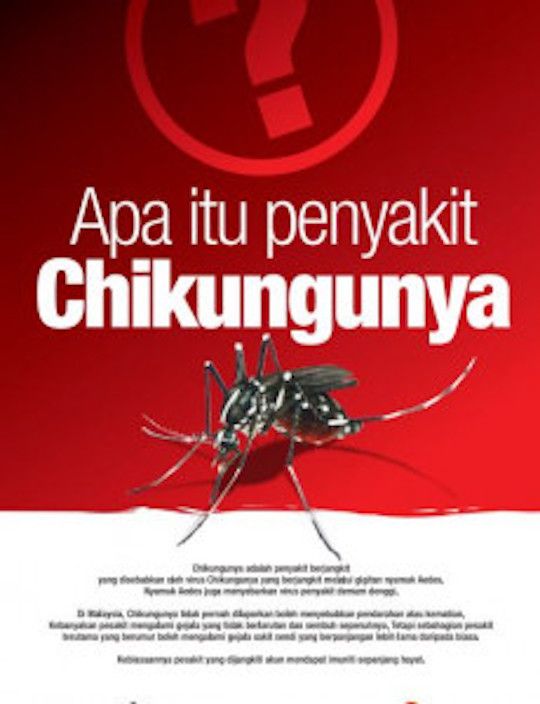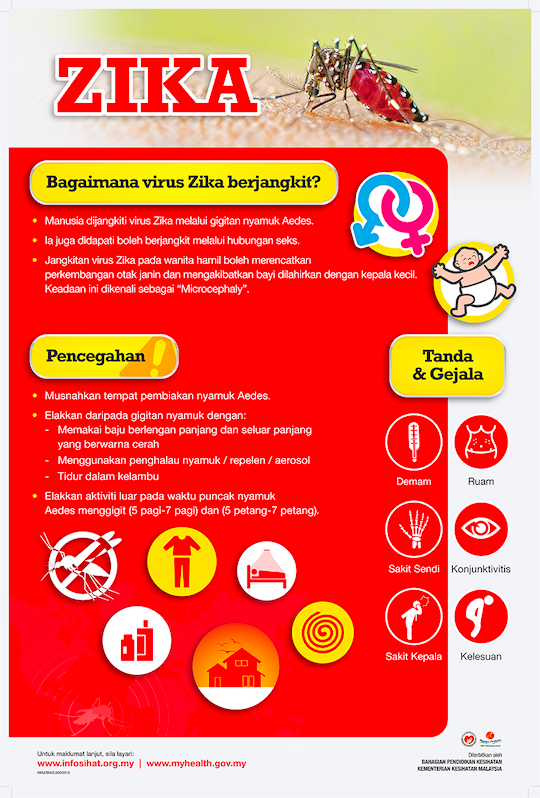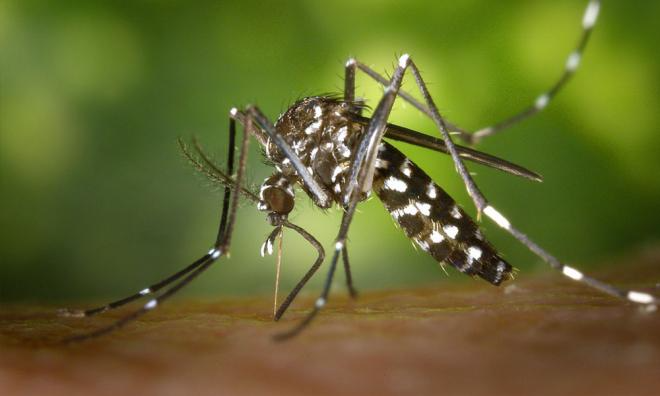
Dengue Fever
- Dengue fever is a mosquito-borne viral disease.
- Caused by infection with dengue virus transmitted by Aedes mosquito.
- The virus is passed on to humans through the bites of an infective female mosquito, which mainly acquires the virus while feeding on the blood of an infected person.
- Each episode of infection is known to induce a life-long protective immunity to the homologous serotype but confers only partial protection against subsequent infection by other serotypes.
- Symptoms of Dengue Fever: fever, swollen glands, red rash, nausea, vomiting, severe headache, pain behind the eyes, and intensely painful joints and muscle.
- Symptoms of having Dengue Haemorrhagic Fever: bleeding from nose, gums, and mouth, difficulty in breathing, excessive thirst, rapid and weak pulse, pale, cold, and clammy skin, skin bruising, severe stomach pains, frequent vomiting, dizziness, insomnia, and restlessness.
- Symptoms appear 2 to 7 days after the infective bite.



 .
.